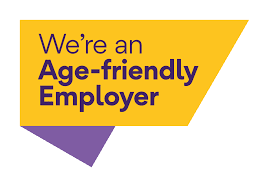Not just big public companies: Martin Bloom on Shareholder Engagement
Right now investors have high expectations about engagement.
That’s according to the latest PwC Annual Corporate Director’s Survey. The survey suggests that directors expect to meet with investors when there’s a crisis, when an activist investor joins the company, or when there’s a negative director recommendation from a proxy advisory firm, among others. There is also 22% of directors who believe they should have a regular dialogue with investors, beyond when there is a crisis unfolding.
In the process of reinventing himself every 15 years or so, Martin Bloom has been, sometimes at the same time, a Non-Executive Director, a Chairman, a CEO, a business mentor, a poet, a photographer, and is currently working on his first novel. He has led the NYSE-listed Chinese solar company Renesola, as well as the clean air solutions company MayAir Group, among others. His passion is scaling companies globally as rapidly as possible.
Russam Associate Director of Board Solutions, Cathy Kay, and marketing manager Harriet May, met with Martin in King’s Cross, London, to ask him about shareholder engagement. This interview has been lightly edited and condensed for clarity.
Cathy Kay (CK): What are the different kinds of shareholders?
Martin Bloom (MB): Are we talking about public companies of all types? There are the founding shareholders, who are sometimes still active in the business and sometimes not. In some cases, there are very strong links between the original shareholders and the management. If it is a venture-backed or angel-backed company, there may also be shareholders from those groups – sometimes many individuals, especially if crowdfunding was used in the early days. You can have institutional shareholders, which include pension funds, university endowments, corporate funds, to sovereign wealth funds from Asia, the Middle East or even Europe.
CK: So they can be pretty far removed.
MB: Sometimes, although many have offices in London so they are actively involved on the ground. You also get many individuals who come in at different stages. Sometimes advisers take their fees in shares instead of cash. And then you have the IPO itself, and the post-IPO. With the IPO, you get the organisations who are handling the listing, so the investment bank may bring in their own clients, and even their own funds. After the IPO you have a whole range of investors including private retail investors, some of whom invest directly and some of whom go through private wealth managers. So it is very diverse.
CK: In that range of different shareholders, where do you think the need for engagement is most vital of the performance and the governance of the company?
MB: It is not just big public companies. A small public company can have many shareholders as well when they go public. And you may have hedge funds investing, which can be for different reasons; some go for quick gain, some for long-term gain. Some are committed to the sector and it is part of a portfolio. There are many different reasons why investors are there, and how long they want to keep their investment. Sometimes, if there is limited liquidity or the price falls after IPO, they can be locked-in in a way that is contrary to their original goals.
CK: So what does shareholder engagement really mean then?
MB: I think broadly what investors would like is access to information, to know what is happening with the company. They like to know about bad news, rather than it being hidden away. For some of them it is a journey thy want to take with the company. Because of financial and legal regulations, you have to be very careful what you say to people because you cannot share information with some shareholders that you do not share at the same time with others; you have to release information for the whole investor base, not just selectively talk to some. That makes things more complex, and the question becomes: at what stage do you release the information? Until the day a deal is done it is not done, so you may have to wait until then. It is also a question of whether the information is price sensitive, whether it is significant for the Company. Investors always like to have as much information as possible, but the question then is how it will affect the deal being done as well as the share price.
CK: It’s the balance of knowing when the information is going to be useful to your cause.
MB: I do not even think it is that anymore. It is more a case of when from a regulatory perspective you are required to disclose the information. And in many cases you have to talk to various regulators before you complete some deals because they may impose certain conditions.
CK: So you’ve got the naturally engaged shareholders. Those people are actively engaged anyway.
MB: And sometimes they contact the CEO or the Chairman regularly asking, if there any news. What’s happening?
CK: Really active, then.
MB: Yes. But you cannot provide news to them without providing it to everyone.
CK: What happens then? Do you put out a newsletter saying, Watch this space?
MB: Well, not a newsletter. You announce it in an RNS. It is the equivalent of a newsletter but it goes electronically to the whole world, investors and potential investors, and their advisors, among others.
CK: When it comes to decision making and you have disengaged shareholders, is it detrimental? Does it matter?
MB: You talk about a disengaged shareholder. I think the issue is more to do with the attitude in the market, whether there is a strong demand for the shares, whether the share price is doing well. That affects how other people relate to you when you are doing deals, as well as by suppliers and customers. When you are discussing sales or strategic partnerships, one of the things they look at is the share price.
CK: Then it becomes a component of a really smart organisation; another way of branding yourself effectively.
MB: It is not branding. It is whether you will get support externally, which could include anyone from outsourced contracts to generating customer loyalty to strategic partners who want to distribute your product in other markets or embed your product as a component in their product. They all look at the finances of the company, whether they are profitable, financially strong.
CK: Some become stakeholders as well as shareholders.
MB: Well they are stakeholders. Another thing to think about is that some employees are shareholders as well, creating a whole new dynamic. They are on the inside. And they are doubly at risk or at benefit because they are both dependent on the success of the company, in which they are employed, and looking to actually get an upside from the shares they have bought.
CK: So that’s a good way of measuring engagement, isn’t it, employing them?
MB: I think employees expect it. But I think much depends on the structure of the company. In a growing company, where things are going well and are profitable and moving forward, then it works very, very well; if the reverse happens there can be issues. If the company is in high tech and maybe running out of money, then it has quite a big impact on the employees, who will not only be worried about their jobs but also about their assets and wealth.
CK: Do you remember the British Telecom flotation, and the excitement? A lot of people who would never have normally got involved with any kind of trading were suddenly seeing an immediate return.
Harriet May (HM): It’s funny because that doesn’t seem to happen anymore, even with things like the Spotify IPO. Millennials aren’t running out to buy shares in Spotify.
MB: Well, they probably do not see the point. They can use the product. Why would they want to buy the company? I think also, when you mentioned British Telecom, I do not think many private investors made any money. They were persuaded to keep their shares for too long.
CK: I made a small investment. I once worked for an online payment systems company called DataCash, and it was bought by MasterCard. I just hung on to those shares, and it turned out to be a good thing. It’s made my feeling about DataCash completely different. It’s interesting to think about the regulatory and government requirements in relation to shareholder engagement. It’s not a free for all, is it, you can’t go on social media and start talking about this and that. If that were to happen would it start bordering on insider trading?
MB: I think it depends what you talking about. If it is not a contract that is going to change the whole basis of the company then you can talk about it, but if it is significant then you have got issues. It depends on the size of the company. If you have a large company like GE, there are so many divisions that you can talk about initiatives for brand development or an event you have had in Berlin to promote a specific product initiative, and this is not not going to change the whole company. When you are a smaller company with fewer revenue lines and maybe are still proving the concept and do not yet have regular sales, everything can make an impact.
CK: So when it comes to the annual report, as the chairman you’re in the front cover of those.
MB: I have been on both sides, as the chairman and CEO.
CK: They’re very interesting reads, often, chairman’s statements. The honesty of what’s happened in the past year, the board’s strategy. They can be very engaging.
HM: Jeff Bezos does good ones, doesn’t he?
CK: What’s good about them?
HM: If you look back at his older letters, you can really see his vision. He’s very clear.
MB: And his vision is fairly consistent.
CK: Maybe we should have a look at a couple of those as examples.
MB: And Warren Buffet as well. The vision of Jeff Bezos and that of many of his investors has been very different. He survived for many years without making any money and having investors pump more money into the company. Now he is making money. Investors sometimes try to micromanage, believing they know how the company should be run. Even with Jeff Bezos. Some investors would prefer a different approach. In many companies the investors are trying to push the company in one direction and the executives are trying to push it in another.
CK: So it becomes a case of who’s most informed?
MB: Well, it is not a question of who is most informed. It is a case of who is tasked with doing it. And usually it is the executives. And if it does not work out, the executives may be replaced.
CK: So it’s not rocket science in many ways, It’s about getting real information, a justified strategy and trying to explain when there’s a negative event why that might have happened. It’s about being real. Treating your shareholders with respect, and having transparency.
Martin Bloom is CEO of Emblem Ventures. Martin helps build the high growth companies of tomorrow to assist them in creating and driving forward their strategies, assisting private and public-listed companies that have high growth potential, mentoring senior management and entrepreneurs. Martin has a special skill in deconstructing business models to make them more scaleable by eliminating obstacles to rapid growth.
Martin is a Director (and previously Chairman for almost 10 years) of the Chinese solar company Renesola (listed on the New York Stock Exchange and building annual revenues of over $1 billion within 6 years), Board Chairman of the air filtration equipment and clean air solutions company MayAir Group (which listed on the London AIM in May 2015) and CEO of Emblem Ventures (a family office established in 1956). He was also Group CEO of Intelligent Energy, productising and commercialising its technology and stabilising its financial position.
Martin comes from an artistic and literary family. Martin is a professional photographer/artist and poet. He had a solo exhibition of his works in an art gallery in the Factory 798 area of Beijing, undertook the Tunnel 228 Project (curated by Punchdrunk) in 2009, had a joint exhibition with the American Surrealist, the Late Lee Miller, at the Lee Miller Archive in Sussex in 2010, and an exhibition at Deutsche Bank in London.

Contact us
Call us on 07930 356305 or email HQ@russam.co.uk








